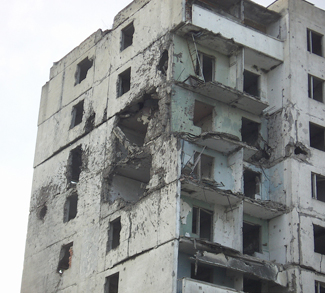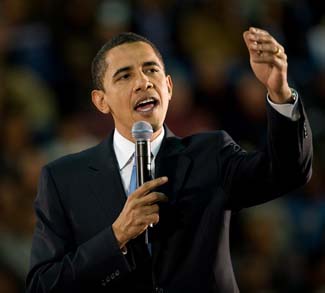The African Sahel region provides ample opportunity for Islamic terrorists to regain territory following major defeats in the Middle East. Porous borders, poorly trained and equipped security forces, and ethnic tensions challenge effective military intelligence operations to thwart expanding jihadism and protect weakened political institutions. ISIS, Boko Haram, and Al-Qaeda cooperate to exploit and annex the hinterlands of the Sahel G5 countries (Mauritania, Mali, Burkina Faso, Niger, and Chad). Their combined successes in gaining a foothold in the Sahel carry catastrophic implications for global terrorism and Islamic insurgencies. Effective military intelligence operations against Sahel-based jihadism can be achieved but continuing socio-political, ethnic, and religious divisions prohibit success.
Islamic State, Al-Qaeda, and Boko Haram cooperate and compete for regional supremacy and international notoriety. This serves to complicate outside intelligence-gathering, as the complex relationships between Sahel-based ethnic tribes provides opportunities to instigate conflicts and avoid detection by coalitional forces such as the United Nations, the European Union, the Sahel G5 Joint Task Force, United States AFRICOM, and France. Despite increasing counterterrorism operations in the Sahel, jihad extremism is proving more agile and mercurial in sustaining a presence, producing catastrophic results such as a 590% rise in deaths in Burkina Faso over the past year. This agility on the part of Boko Haram, the Islamic State, and Al-Qaeda revolves stems from an ability to integrate into preexisting trafficking networks, seeding political cadres in the hinterlands of the Sahel G5, where government security forces are minimal and borders remain weak.
The importance of HUMINT in the Sahel
To have a viable chance at obtaining adequate intelligence for counterterrorism and counterinsurgency operations, there must be interested parties who are willing to cooperate, and these parties must utilize their resources responsibly. Focusing on HUMINT provides a foundation for further acquisition of information highlighting the political and socioeconomic entanglements that Islamic jihadist organizations seek to obscure. HUMINT difficulties arise from being unfamiliar with ethnic tribal grievances, relationships, and susceptibility to extremism. Severe health, education, environmental (resources and water contamination), and standards of living conditions further complicate HUMINT operations, as grave distrust toward African central governments is rampant and alternative sources of security and employment in the form of jihad terrorist organizations are often viewed as more favorable. However, HUMINT remains the best viable option for acquiring and utilizing intelligence in the Sahel.
HUMINT allows insight into the conflicting initiatives and competition between government authority, terrorist organizations, traffickers, gangs, and smugglers that is undermining regional stability and development. Military intelligence in this region is enhanced when all factors of instability and insecurity are observed collectively, rather than as separate parts. HUMINT provides more clarity, and thus more operability, than other intelligence gathered through SIGINT, COMINT, and IMINT. Extremist groups in the Sahel operate in connection with transnational criminal networks that have presided over regional trafficking routes for decades. Despite post-colonial borders and modern maritime and air trading, pre-colonial land routes serve the purpose of transnational trafficking and serve as logistical hubs for extremism.
The role of other intelligence-gathering methods
Utilizing SIGINT and IMINT to detect the movements of terrorist organizations and their illicit activities via full motion video from location-based intelligence is essential for diminishing the threat of Sahel-based extremism. IMINT provides extensive situational awareness ranging from the dispersal and movements of extremists across the Sahel to terrorist operational readiness, capabilities, and build-up. SIGINT allows for interception, processing, and reporting of terrorist communications to enhance counterterrorism and counterinsurgency operations in the region.
By acquiring voice, data, and video communications and Internet transmissions, if applicable, SIGINT reinforces the IMINT and direct HUMINT to particular areas of the Sahel region ripe with transnational Islamic extremism and criminal activity. Though successful in theory, the vast size of the Sahel region, the multitude of participating actors (state and non-state), and overlapping agendas hinder military intelligence operations meant to hinder the ability of Islamic jihadists and criminal organizations to exploit tribal grievances and weak government institutions.
Minimal communications and trust between governments and villages hurt the prospects of success in infiltrating extremist organizations, creating blind spots in intelligence-gathering that impact counterterrorism and counterinsurgency readiness, preparation, and operations. These blind spots are safety nets to Sahel non-state actors, which thrive on miscommunication and the overlapping interests of state actors and their international supporters. Thus, a comprehensive effort from these state actors and international institutions is required to overcome transnational complications such as border patrols, human development, interconnectivity, and poverty. Less of a focus on unilateral national interest in turn increases cooperation among Sahel G5 countries and international supporters, allowing them greater access to intelligence necessary to mitigate growing extremism in the region.
Targeting criminal activities and Islamic extremism without adequate military intelligence only exacerbates the security dilemma of the region. Military intelligence incorporates producing effective approaches to the uneasy balancing between the informal regional economy and widespread poverty. A careful military intelligence operation, combining HUMINT, IMINT, and SIGINT, constructs alternatives to diminish the attractiveness of illicit activities and militant extremism.
Insecurity in the Sahel is a transnational phenomenon
Reducing extremism in the Sahel does not stem solely from military counterterrorism, counternarcotic, and counterinsurgency operations. The sources of Sahel extremism are linked to economic, education, health, environmental, financial, security, and political challenges stemming from climate change, demographic growth, and sustained organized crime. The intensity of geopolitical competition among great powers increases the conditions that perpetuate the longevity of Sahel extremism, including stabilizing authoritarianism, which in turn perpetuates fragile political institutions and rampant corruption. France, the United States, Russia, and China contribute to an unending cycle of political and ethnic violence occurring in the Sahel. African institutions such as the African Union and the Economic Community of West African States (ECOWAS) fail to address the underlying conditions that fuel the growth of African transnational extremism, trafficking, and smuggling. All this combines to undermine the efficiency of state institutions and worsen the situation for those living in the Sahel region.
Of the main powers that are contributing to this worsening condition, France’s unilateral approach to military operations as the dominant power in West Africa continues to undermine multilateral approaches to directly resolve regional complications and sources of extremism. Russian security cooperation and military contracts with the Sahel G5 countries exacerbate the security dilemma. Since 2018, Russia signed 19 military-technical cooperation agreements with Sub-Saharan Africans, including the Sahel G5 countries. Out of the Sahel G5 countries, Russia has expanded military contracts and security agreements with one of the countries most afflicted by Islamic fundamentalist extremism: Mali. The strategy of Russia is to demonstrate effectiveness in combating political, ethnic, and religious extremism in Mali to undermine US and French efforts and legitimacy in the region. Since 2019, public opinion of Russia has dramatically increased in Mali, indicating a potential shift in preferred security partnerships for the Sahel from France and the United States to Russia and potentially China. The trend continues to manifest as Cote d’Ivoire’s Ambassador to Russia Roger Gnango has called for increased military and security cooperation following the Mali coup. Instability in the region allows for further inroads by Moscow to encroach and infuse itself within the security and economic affairs of the Sahel
China operates more strategically with its presence and agenda in Africa. Seeking the incorporation of Africa into the Belt and Road Initiative in a neo-mercantilist strategy, China has committed 300 million yuan ($45.56 million) toward G5 Sahel Joint Force security and counterterrorism operations to combat Sahel extremism. Through the United Nations, China pushes for international assistance toward securing African electoral processes; however, there is another aspect to Beijing’s public diplomacy: China cannot capitalize on Africa’s untapped resources if political and security environments are unstable and constantly destabilized. Chinese investments are geared toward infrastructure and resource extraction instead of African workforce development and increasing living standards to mobilize regional and continental development.
Sahel extremism is a complex security dilemma that threatens stability for approximately 135 million people. Designing new military operations in a region already dominated by them won’t achieve stability. Without addressing the socioeconomic conditions and trends that contribute to Islamic fundamentalism and political extremism, the cycle of violence will continue to expand, directly threatening and unraveling all sources of progress and development.
Inadequate military intelligence alone does not fuel extremism, but it emboldens its operations and existence. A new way forward must incorporate a multilateral approach that goes beyond France’s unilateralism and allows Sahel countries to strengthen their political and socioeconomic institutions. Only then can operations be tailored to effectively reverse the extremism that is dragging the region toward anarchy.
The views expressed in this article are those of the authors alone and do not necessarily reflect those of Geopoliticalmonitor.com or any institutions with which the authors are associated.




